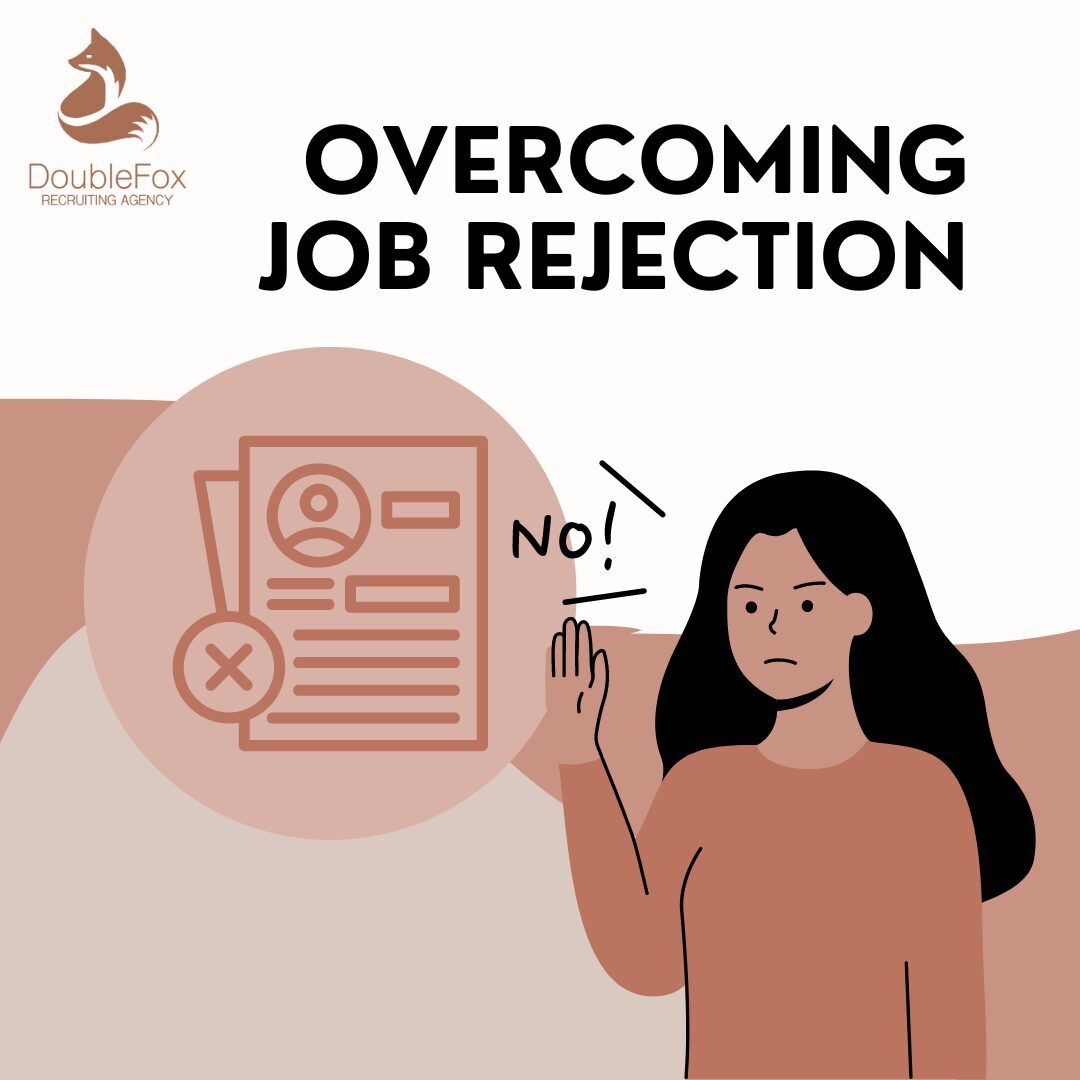OVERCOMING JOB REJECTION
Experiencing job rejection can be a challenging and disheartening part of the job search process. It's natural to feel disappointed and frustrated when you don't receive the news you were hoping for. However, it's essential to remember that rejection is not a reflection of your worth or abilities. Instead of dwelling on the disappointment, focus on how you can overcome rejection and emerge stronger in your job search journey.
Here are some strategies to help you overcome job rejection:
Acknowledge Your Feelings: It's okay to feel disappointed or upset after receiving a job rejection. Allow yourself to acknowledge and process your emotions rather than suppressing them. Talk to friends, family, or a mentor who can offer support and encouragement during this time.
Learn from the Experience: Use the job rejection as an opportunity for self-reflection and growth. Consider what aspects of your application or interview could be improved and how you can enhance your skills or qualifications for future opportunities. Every rejection provides valuable feedback that can help you refine your approach and become a stronger candidate.
Stay Persistent and Resilient: Don't let rejection discourage you from continuing your job search. Remember that finding the right opportunity takes time and perseverance. Stay focused on your goals, maintain a positive attitude, and keep moving forward despite setbacks. Use rejection as motivation to work harder and keep striving for success.
Seek Feedback: If possible, reach out to the employer or recruiter for feedback on why you weren't selected for the position. Constructive feedback can provide valuable insights into areas where you can improve and increase your chances of success in future applications. Be open to receiving feedback and use it as a learning opportunity.
Expand Your Network: Networking is a valuable tool for uncovering hidden job opportunities and connecting with professionals in your industry. Attend networking events, join professional groups, and engage with individuals online to expand your network. Building relationships with others can lead to new opportunities and referrals that you may not have discovered otherwise.
Practice Self-Care: Job rejection can take a toll on your mental and emotional well-being, so it's essential to take care of yourself during this time. Make self-care a priority by engaging in activities that bring you joy and relaxation, such as exercise, hobbies, spending time with loved ones, or practicing mindfulness techniques.
Remember that job rejection is a common experience that many people face throughout their careers. Instead of letting rejection hold you back, use it as an opportunity for growth and self-improvement. Stay resilient, stay positive, and keep pushing forward towards your goals. The right opportunity is out there waiting for you.

